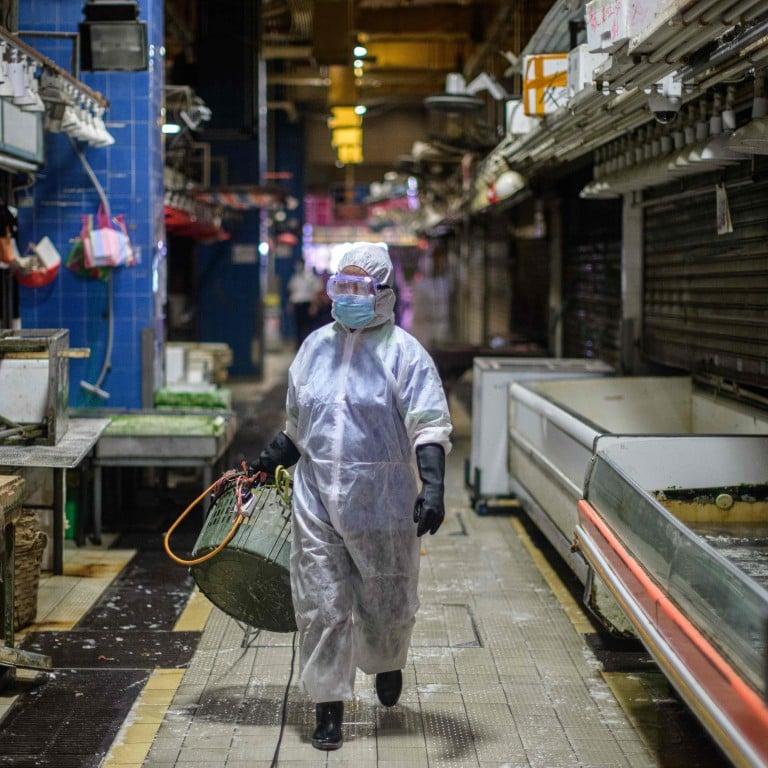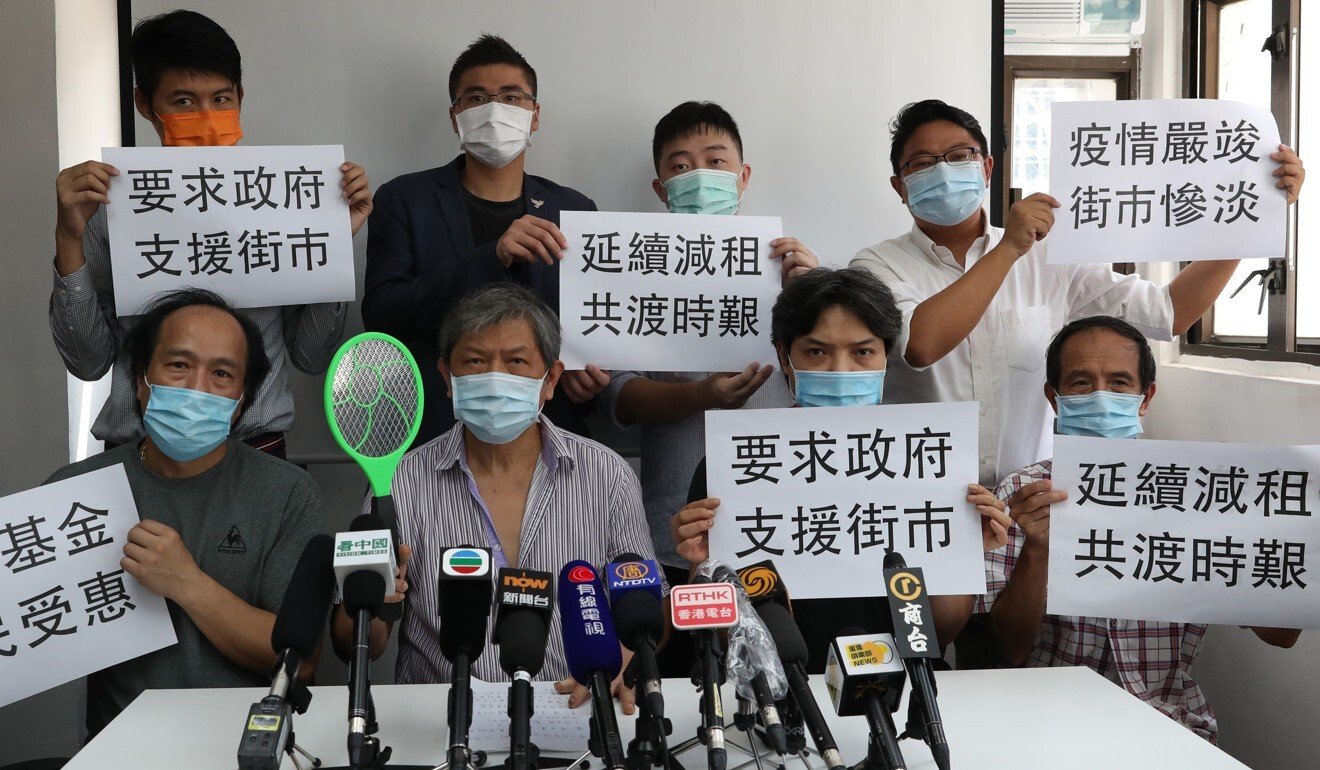
Coronavirus: Hong Kong financial secretary warns against depleting city’s coffers amid pandemic, as market vendors call for aid
- Chan urged caution, warning the fight against the virus could drag on longer than expected
- The comments came as wet market vendors raised concerns they had been left out of previous rounds of subsidies
On Sunday, Chan said the two rounds of help from the Anti-epidemic Fund, and other measures from the budget, have cost the government about HK$280 billion, amounting to 10 per cent of the city’s gross domestic product.
The city’s reserve is also expected to drop from HK$1.1 trillion in March to HK$800 billion in August, he said.
“The third wave of infections is not over yet. Experts have already predicted that there could be another wave for winter,” he wrote in a blog post.

Even with vaccines in the future, the outbreak would not be over within a year or so, he added.
“In face of the challenge and the extreme uncertainties, the government needs to be cautious financially,” he said. “When we move ahead to help companies and citizens with their financial pressure, we need to make sure that the public money is used properly.
“We need to try our best to avoid seeing our reserve shrink rapidly, so that we will continue to be capable of handling the needs of society and defend the financial stability.”
The government has recently revised its economic forecast for this year, from a contraction of between 4 per cent and 7 per cent, to one of between 6 per cent and 8 per cent.
Hong Kong economy expected to shrink 6 to 8 per cent for year
Since such records began nearly 60 years ago, Hong Kong has only seen three full-year economic contractions: in 1998 (5.9 per cent), 2009 (2.5 per cent) and last year (1.2 per cent). If the economy shrinks this year as expected, it will be the first recorded back-to-back annual contractions ever.
Still, Chan made it clear the government had been studying how to further strengthen its support for different businesses.
Soon after Chan’s blog was published, vendors from several wet markets in the Yau Tsim Mong district complained to media that many of them did not benefit from the previous rounds of financial assistance.

Some said business had been down by as much as 90 per cent.
While the government has halved rents for them until next month, they hope this could be extended to a year. Some even suggested authorities should consider waiving rents completely.
Market rents can vary from just HK$2,000 a month to rates several times higher.
Szeto Kwang, who has been selling barbecued meat at the Fa Yuen Street Market in Mong Kok for about 30 years, said he managed to survive the severe acute respiratory syndrome (Sars) outbreak of 2003, but now feared he would have to shut his stall.
Should you be worried about Hong Kong’s wet market Covid-19 clusters?
“I have not received any government subsidies,” he said.
According to Mong Kok district councillor Derek Chu Kong-wai, many market vendors run their businesses with special market licences. These people, such as Kwang, were not eligible for the previous rounds of one-off subsidies.
Lucy Woo, who sells fruit at the same market, has seen her business drop by 90 per cent. She was not entitled to any government subsidies.
Other vendors said their businesses had been badly hit because many restaurants, who used to be their biggest customers, have been suffering as well.


